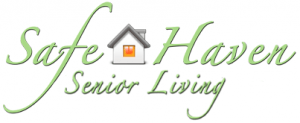Medication management for elders can be a minefield. Elders are often treated by several doctors, and each doctor may have prescribed different medications. In combination, all of the prescriptions from all of the doctors produce a complex daily medication schedule. Complex daily medication schedules can arise with a multitude of prescriptions from different doctors. Medication management can also bring forth questions such as these:
- Is each doctor aware of other prescribed medications?
- Have the prescriptions been researched for possible adverse drug interactions and side effects?
- Are all of the prescriptions being filled?
- Are the medications organized and labeled in the proper way so that medications are being taken at the proper times?
- Is the elder actually taking the medications?
- If Medicare and supplemental insurance are available, are claims and other issues being resolved?
It’s no wonder that many elders need help in keeping their medications in order. In some unfortunate situations, some elders try to economize by taking reduced doses of prescribed medication or by deciding not to take it at all.
If your elder needs medication support or supervision that you can’t provide yourself, you should know that you have options to consider. Many assisted living facilities, for example, offer help with basic healthcare needs, including medication management. For more active elders, some senior housing communities provide medication management. These are all living arrangements in which caring healthcare professionals are responsible for making sure that medications are taken as prescribed. 77.5% of residents needed assistance with medications.
Medication Administration Process
Caregivers on duty always prepare and administer medication(s) to residents in a safe, effective and ethical manner. Their job is to make sure that all of the necessary steps are taken to ensure that there are no errors in the medications that are given. Our caregivers work hard to perform the following:
- Ensuring that the resident receives appropriate education about the treatment plan and current medication.
- Ensuring that the resident or the client’s substitute decision-maker has given consent to administer the medication.
- Preparing and administering the medication according to an evidence-based rationale.
- Obtaining a new supply of medication if there are concerns about how the medication has been maintained.
- Applying principles of infection prevention and control when administering medication.
- Ensuring that the resident receives appropriate monitoring during and after administering the medication, and intervening if necessary.
- Documenting, during and/or after medication administration, in the resident’s record according to documentation standards.
- Advocating for appropriate environmental supports to ensure residents receive safe, effective and ethical care.
Employees also need to evaluate after the resident has taken medication. This is simply to ensure that the resident does not have an adverse result. Even if resident is self administer the following steps still need to be followed:
- Recognizing resident outcomes following medication administration, including effectiveness, side effects, signs of adverse reactions and/or drug interactions.
- Following up with the prescriber regarding any concerns or questions about the medication.
- Referring residents to the appropriate care provider for further assessment and follow-up when necessary (for example, when the underlying problem persists despite PRN medication).
- Documenting actions taken or advice given and resident outcomes according to documentation standards.
- Documenting, when appropriate, if the resident is capable of self-administering the medication, including the type of assistance the resident requires, if any, and the ongoing nursing assessment of the resident’s capacity to continue self-administration.
- Advocating for adequate resources and systems that facilitate safe, effective administration according to standards.
Enhancing Resident Safety
Employers have a shared responsibility to create safe practice environments. Quality practice settings include appropriate staff, medication systems (for example, delivery, administration, policies, procedures) and environments to facilitate safe, effective and ethical care. The following section provides information and resources to help employers work together to prevent and resolve medication issues.
Safe Medication Practices
To support safe medication practice, systems need to be in place to track, address and learn from any medication errors that occur in the practice environment.

